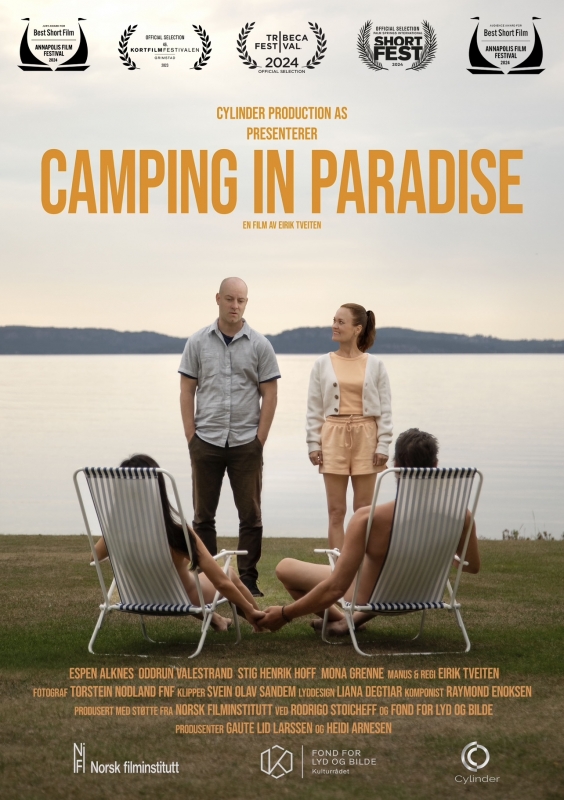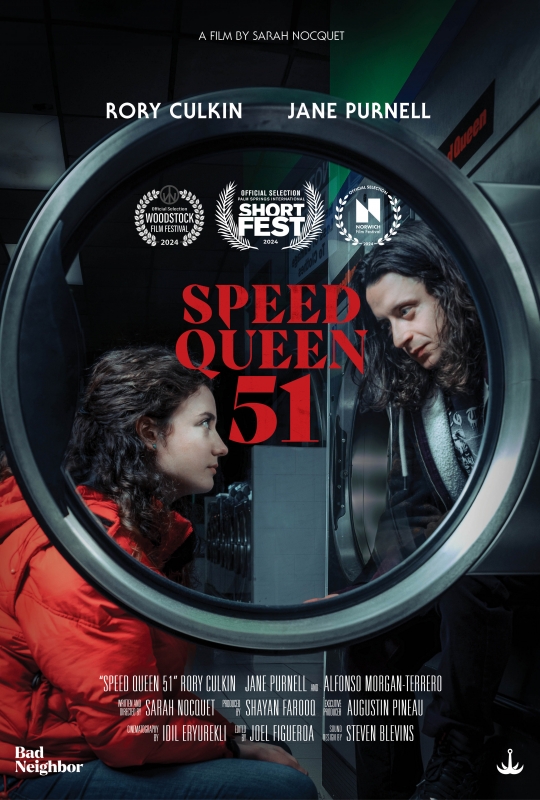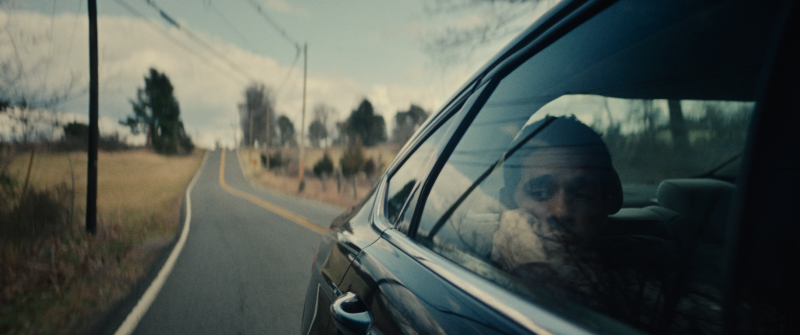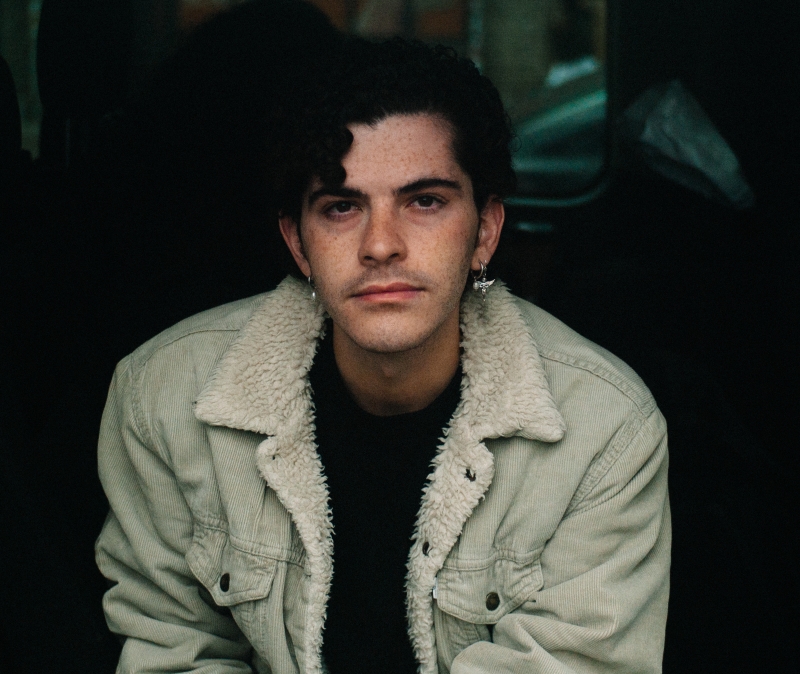|
|
||
|
Pro Tools
FILMFESTIVALS | 24/7 world wide coverageWelcome ! Enjoy the best of both worlds: Film & Festival News, exploring the best of the film festivals community. Launched in 1995, relentlessly connecting films to festivals, documenting and promoting festivals worldwide. Working on an upgrade soon. For collaboration, editorial contributions, or publicity, please send us an email here. User login |
THE TILLMAN STORY- Q and A.THE TILLMAN STORY- Q and A.
THE TILLMAN STORY (USA, 2010) by director Amir Bar-Lev is a documentary about the football player Pat Tillman who gave up a multimillion dollar career in professional American football to go to war with the Army Rangers in 2002. He sacrificed personal success to fight alongside his brothers in war, a decision which for him was deeply personal. While in Iraq, Pat was tragically killed by ‘friendly fire’ (his own men). After his death he became a national hero; however, the press and government turned this heroism into a warped myth to feed American patriotism and the idea that giving up everything for god and country is the ultimate act of heroism. Dannie Tillman, Pat’s mother, went on a crusade after Pat’s death to right this fictional myth of her son created by the media and government to tell the world that her son indeed is a hero but not for the reasons he has been made out to be. She questions the true heroism of her son with that of twisted self-interested modern American values which in themselves are not myths at all but the spoiling of myth. Find out from director Amir about the truth behind the ‘myth’ of the hero that was Pat Tillman and why his story went against the grain of modern American ‘heroism’ and why we need to question the difference between nourishing myths and cheap ones. Amir answered these questions in a Q and A in Thessaloniki, Greece after his film screened to and eager and fascinated audience.
Q: Can you tell us more about the accident how Pat was killed?
AMIR: Pat Tillman was killed in an accident but it was very very negligent. It was a criminally negligent accident. The government’s position, and in fact, and most of the soldier’s position was that it was a confusion talk of war, like in a confusion of combat from Vietnam and most of the images that we have from what we think of as friendly fire. If his mother was able to prove that it wasn’t that scenario , that it wasn’t so confusing, if there had been an ambush, and there’s a lot of debate, it happened ten minutes earlier and by the time Pat was killed they were safe, but the soldiers were hyped up and they were in a way enjoying their shoot, but they didn’t know it was Pat they were shooting at. There’s no evidence that they knew it was Pat. One of the things the film tries to get closer to is some of the contradictions of why men go to war, the psychology of being in war. Of course no human being likes to have their life in danger, It’s innate in us but at the same time, few soldiers, I’m generalizing of course, but few soldiers want to be telling their grandchildren fifty years later that they didn’t see any real combat when they went off to Afghanistan or whenever. And that speaks to the psychology of these men who were firing these weapons who had never had an opportunity to fire their weapons before and saw an opportunity to be in firefight. That’s what they said in their testimony, anyhow.
Q: How did you hear about the Pat Tillman story? Did you get a newspaper and you found the story? And when did you start to shoot the movie? What is the budget?
AMIR: So, the film was completely financed by A & E Indie Films at the very beginning. In America, we don’t talk about the money, it’s bad luck, but it was around a million dollars, roughly. This was a pretty well-known story in the U.S. Most Americans are pretty familiar with it. I got interested in it around when you saw that congressional hearing. So, we had mostly archives and interviews. There was no verite filming, as we would say, but I skipped around because the reason I mention the archival speaks to your question how we got this story. This story was very widely reported but the reporting was total shit. A lot of what you see in this film was available to anybody. For instance, the Jessica Lynch “rescue”, when you see the footage you can see that it’s a film production. You can hear them say, ‘get the camera out of the shot’, you know. We got that footage on CNN. That’s the same tape that all of the networks have (CNN, ABC, NBC) but they chose not to show that footage because it didn’t fit with what they wanted to tell the world about Jessica Lynch, that she was a female Rambo from the West Virginia mountains. So, I think it speak a lot to the state of the press, the way myths work and are created by the press because it sells more shampoo. It’s not as though Donald Rumsfeld said to the head of CNN, ‘you’re going to do this’…No, they know that when someone’s flipping through channels they see something that reminds them of a Hollywood movie, then they stop. It’s an instinct, of today anyway. And so it’s a resonant image so they didn’t want to make a complex story about Jessica Lynch or Pat Tallman. They wanted to tell a story that reminded people of a Rambo or John Wayne. So that’s part of the whole culture. A lot of the stuff we put together here we put by reading between the lines of the story. So, you know, good luck.
Q: All nations are built up on myth. Probably your film can help show societies they don’t need secret glorification.
AMIR: I really appreciate the compliment. Well, for me it’s not about the fact that Pat is not a hero. It’s about a more complex understanding about what the word ‘hero’ means. If the film or the family is trying to, like you said, move consciousness forward a little bit, it’s not that they’re saying he’s not a hero. They’re saying, as the brother says at the end, ‘let’s make an accurate myth’. You know, for an American here in Greece… Of course, we associate Greece with myth. Right? At least in the West that’s where the oldest pervasive and long lasting myths in our culture come from…from your country. So, myth making is a part of human experience in every culture, I think. But what separates a good myth that lasts as long as the myths from Greece from a cartoon myth, like a ‘cheap myth’, is it’s accuracy, weather it speaks to you…And what they created with Pat Tillman was a cheap myth that is not gonna last. You know, it’s a myth that won’t last because it’s a superficial candy myth that has a good impact at first but it’s not a nourishing myth. So, I think the film is not about stripping away myths completely because it’s how we understand the world and how we understand ourselves, but it’s about trying to make myths more accurate. AMIR CONT.: I don’t like this word ‘sacrifice’ because it reminds me of Jesus. In America, they always, even before Pat Tillman died, almost as a mantra over and over again they talked about his ‘sacrifice’. The word ‘sacrifice’ was used all of the time with Pat Tillman and I think it’s an interesting thing to think about this idea that he sacrificed. It became almost like a totemistic thing like he gave up so much, that he did something irrational and you got the sense it was repeated over and over again almost as an instructive thing to people, that there is a rational world in which your career is important and your new wife and new house is important, and all these things, but there’s something transcendent that’s irrational and that’s in this myth with flag and country and patriotism. So, two days ago we did a tour of the ruins of Vergina and the tour guide was talking about his in ancient times people would come and destroy cattle and horses and things that were very usesful but the idea of this irrational act of putting it on fire for the gods was a way of saying that there’s something more important than sustenance. And I think Pat Tillman functioned that way for people, you functioned as an irrational transcendent thing that has a lot of power and it was used by the Bush Administration to kind of connect religion to patriotism in the background. [gave the microphone to his translator and said ‘good luck’. Lol].
Q: You talked about irrational stuff and one word coming to my mind is ‘freedom’ and that word keeps coming to my mind. And that’s why this is so fascinating because he doesn’t explain why he goes to the way. He didn’t make it commercial. He just made his own decision and that’s what impacted me because this is a big myth of your country [America].
AMIR: I’ve always been very fascinated and impressed even in the way that they were able to turn Pat Tillman into the opposite of who he was. The thing that everybody knew him said was his most remarkable quality was that he was very self-confident but at the same time he questioned his own beliefs always. You know, he would have an idea… and they said he would always try and argue both sides of an argument just to see if he could think of both sides of the coin. He was a person with confidents but also guts. He has strong beliefs but when he came back from Iraq, he began to doubt and question his decision. That is very threatening for myth makers, especially in our country. So they had to turn him into a guy with a single purpose who didn’t ever question anything and was sort of the embodiment of servitude and determination. I think it’s partially because of the way we think about 9/11. Because after 9/11 many commentators in America said that we entered a new chapter of servitude, a time of purpose, a time of collective sacrifice and purpose and they were actually almost gloating that the Vietnam era was over, meaning we no longer have all these questions about whether it would be a force of war on imperialism, those questions are over because we now have a new enemy, a new sense of purpose and Pat Tillman was used about the embodiment of that. So, I think you’re right…It’s about freedom but also freedom of thought. And the way they used him was to take that away from him because that just went completely to the side. Never on any TV coverage, any news, anything, was that ever described.
Q: Was the film screened in the States and what was the reaction?
AMIR: Yes, it was shown in the States and we deliberately tried to make the film evenhanded in its approach to politics. In fact, we tried to make it more personal than political. In America, as you can see, a wide variety of Americans lionized Pat and admired him from the left to the right, particularly on the right actually. So, we wanted to make a film that people were interested in seeing and they wouldn’t be able to dismiss it as a leftwing film. So a lot of screenings that I was very pleased about were in places like military bases and in Afghanistan there’s a Pat Tillman USO center, which is sort of a recreation hall which they built and dedicated to him after he died but before they knew what his family was all about. They actually showed it over and over there to the soldiers on the base in Afghanistan. It showed in a few military bases, in Afghanistan and it showed in a bunch of cities in the U.S.
Q: Have you been approached by other families for such a case?
AMIR: Many such cases and yes, I have been approached. But particularly Pat’s mother has been approached. In fact, she is kind of a lightning rod for other families who have had this happen to them. I can tell you there’s even there’s a very tragic case that you can find on –salon.com- and search for ‘friendly fire’ and that is all videotaped because the colonels all had cameras on their head and until the moment where he calls up back at the base and you see him say ‘they just shot us, our own men just shot us and killed two people’ and then he tells the people below, ‘okay, from now on we’re going to say that it didn’t happen that way’ and then finally someone says, ‘Is that thing on?’ and the camera on his helmet he turns it off and it’s very stunning fifty minutes of tape to watch.
Q: During the film, Pat’s mother realized what she was looking for actually. So what does it mean for her and for you that through this film the story traveled like miles all over the world?
AMIR: Well, it’s very gratifying but I would just say that you hear what Dannie says at the end of the film. She says ‘we’re never gonna be satisfied because they’re never gonna have Pat back. So, I think the film is somewhat cathartic for the family but I don’t want to overstate its significance. Nobody involved in this conspiracy has ever paid a price. Someone asked about where it’s shown. You know, General Crystal, who is a key player in this conspiracy is now teaching at one of our best universities, at Yale, and he’s teaching classic leadership. So, we wanted to show the film there to show the students so they could see who their new leadership professor was and I have to say, very few students even showed up. So, we’re very gratified to be showing the film all over the world. That’s very thrilling. And I hope this new technical thing you have set up (streaming live in different cities) doesn’t mean that for my next film I’ll have to do Q and A from my own bedroom. But anyway, it’s very gratifying and I very much appreciate the reception.
Q: What would you think about making the film into a long film based on that fact of the intrusion of Americans into Afghanistan?
AMIR: Well, I will be more than happy to make that film but I don’t think this is it. It kind of relates to what I was saying earlier. We didn’t want to make a film that questioned whether or not we should be in Afghanistan or whether or not we should be in Iraq because that would’ve polarized our audience and then we wouldn’t have reached as many people. And I think, to my mind anyhow, it’s a story that is topical and has to do with these two wars and the press and our culture but it’s also a very old story. I think this is a story that’s been happening for a very long time, as long as people have been going off to war, people have been coming back and glorifying it in all cultures so we wanted to be very careful about how we spoke about this particular story.
Written and transcribed by Vanessa McMahon March 28, 2011
STAY TUNED FOR INTERVIEW WITH AMIR… STILL TO COME. Amir Bar-Lev in Q and A in 13th TDF Amir Bar-Lev in Q and A in 13th TDF 29.03.2011 | Vanessa McMahon's blog Cat. : A & E Indie Films ABC Afghanistan America American studies Amir Bar-Lev AMIR CONT CNN Director Donald Rumsfeld Entertainment Entertainment forward General George Tillman, Jr. Greece Head Iraq Jessica Lynch John Wayne NBC Next Magazine Pat Tallman Pat Tillman Pat Tillman Person Career player professor Propaganda in the United States Quotation Technology Technology The Tillman Story THE TILLMAN STORY- Q and A. Today tour guide translator United States United States Vanessa McMahon March Vietnam West Virginia West Virginia Yale You Got to Move
|
LinksThe Bulletin Board > The Bulletin Board Blog Following News Interview with IFTA Chairman (AFM)
Interview with Cannes Marche du Film Director
Filmfestivals.com dailies live coverage from > Live from India
Useful links for the indies: > Big files transfer
+ SUBSCRIBE to the weekly Newsletter Deals+ Special offers and discounts from filmfestivals.com Selected fun offers
> Bonus Casino
User imagesAbout Vanessa McMahonThe EditorUser contributions |




























